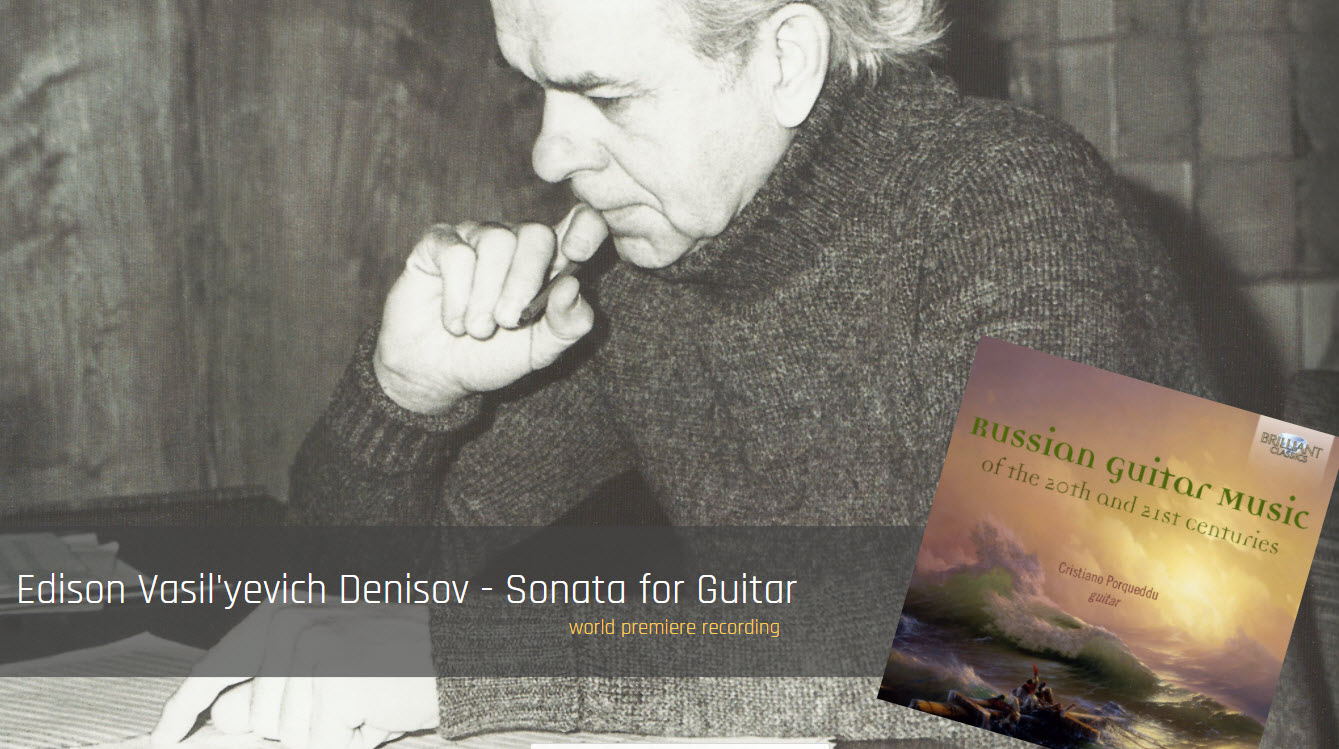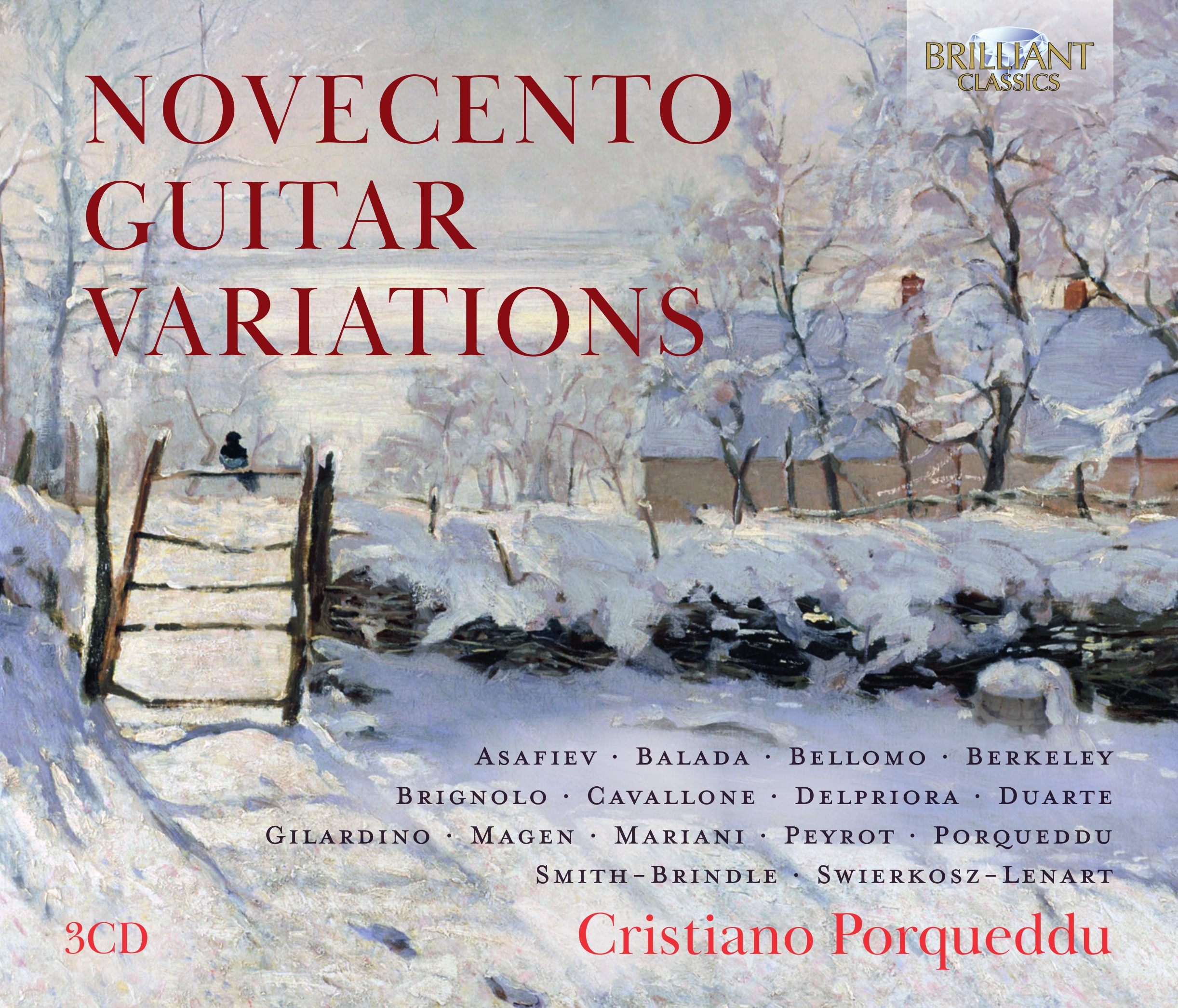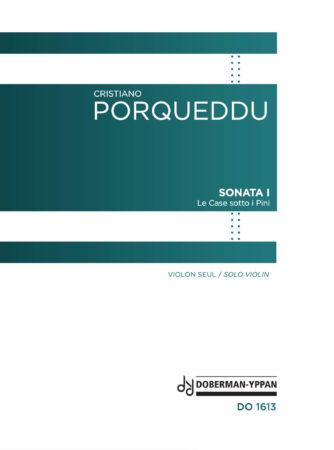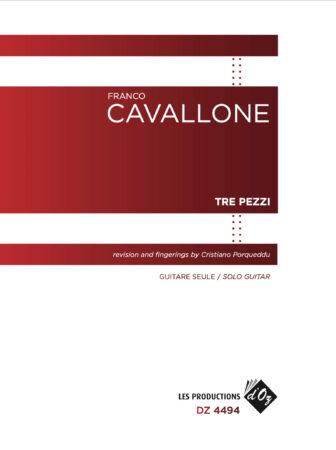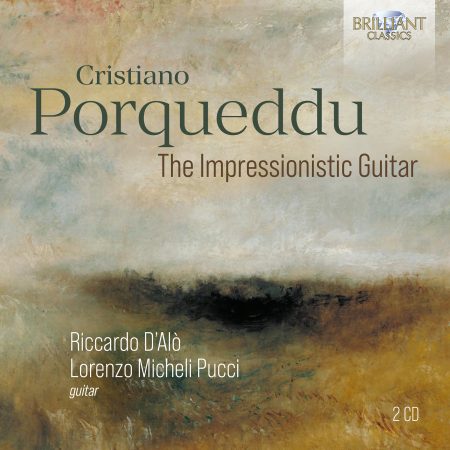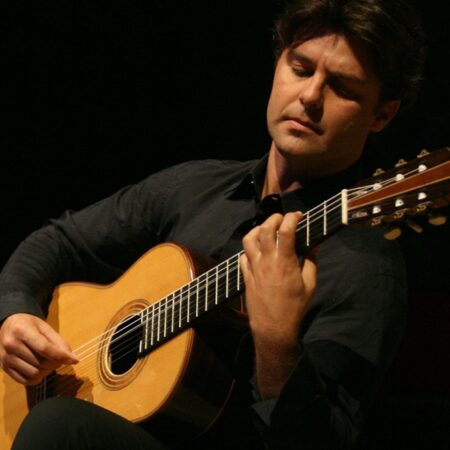La prima registrazione assoluta della Sonata for Guitar di Edison Vasil’yevich Denisov è contenuta nel cofanetto “Russian Music for Guitar of the 20th and 21st centuries”.
Dalle note di copertina:
Edison Vasil’yevich Denisov (1929-1996) was born in Tomsk, Siberia, into the family of a radio physicist. In his childhood he learned to play guitar and mandolin, and in 1946 began his studies simultaneously at the Tomsk Musical College (where he studied piano) and the Department of Mathematics and Physics of Tomsk University. Similarly to Gubaidulina’s, his early compositions received encouragement from D. Shostakovich. After he graduated from the Moscow Conservatory in 1956, he worked there as a teacher. However, since he was already considered too avant-garde for the institution, he taught exclusively instrumentation, and was not allowed to teach composition until the Perestroika. Together with Gubaidulina, he was among the composers condemned in 1979 by T. Khrennikov. As a result, he was more appreciated in the West than at home, and in 1994 he moved to Paris, where he died two years later.
His Sonata for Guitar is a true tour de force, showing not only his command of musical form but also an intimate understanding of the expressive ability of the instrument. The three movements make cultural references to three completely different historical periods, but something in their musical fabric unites them in a firm cycle. The first movement (Track 1) is a busy, anxious Toccata, a late-20th-century response to the organ toccatas of J. S. Bach. The middle movement, Berceuse (Track 2), is a tribute to Romantic music, but again, only in terms of articulation and phrasing. Finally, the concluding Souvenir d’Espagne (Track 3) is an energetic celebration of guitar music, featuring the characteristic strumming pattern of a seguidilla.
Per i lettori di questo blog ecco i tre movimenti:
I. Toccata
II. Berceuse
III. Souvenir d’Espagne
